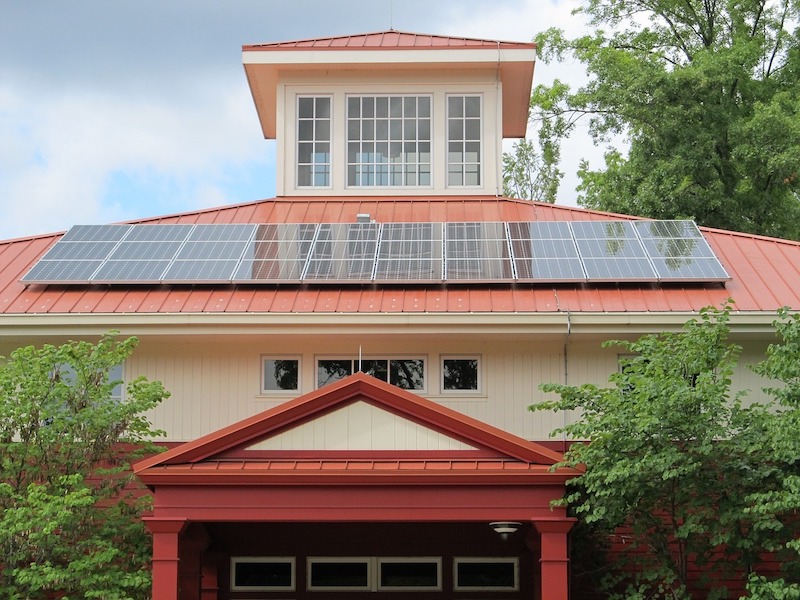The U.S. Department of Commerce tentatively agreed to assess tariffs of up to 35% on solar equipment, a move that could slow the rapid growth of the domestic solar power industry. SolarWorld, a German company with a U.S. base is in Oregon, requested the tariffs, claiming China unfairly subsidizes its solar manufacturers.
Solar panel installers, on the other hand, are opposed to tariffs. These companies have boomed as panel prices have fallen 70 percent since the start of 2010. Tariffs, they say, will make solar power less affordable.
SolarWorld made a similar complaint to U.S. trade officials in 2011. The next year, the Commerce Department imposed duties averaging 31% on Chinese solar cells. Many Chinese companies responded by taking cells made in other countries, assembling them into panels in China, and shipping them to the U.S. to sidestep the tariffs.
Many solar power industry insiders are holding out hope that SolarWorld and the Chinese can work out a settlement.
(http://www.sfgate.com/business/article/Tariffs-could-dim-solar-energy-s-rapid-growth-5538030.php)
Related Stories
Codes and Standards | Sep 22, 2021
Group proposes Carbon Use Intensity metric for new buildings
Plan would track embedded carbon on projects.
Codes and Standards | Sep 22, 2021
Illinois’s sweeping climate bill includes statewide stretch code, building electrification measures
Aims for zero-emissions power sector by 2045.
Codes and Standards | Sep 22, 2021
Cities need to step up flood mitigation efforts to save lives
Recent storms highlight climate change dangers.
Codes and Standards | Sep 21, 2021
Steps to improve ventilation for Covid can combat colds and flu
New look at airborne disease spread shows time viruses linger in air may have been underestimated.
Codes and Standards | Sep 15, 2021
USGBC will change leaders, conduct strategic review
Aims to ensure organization is ‘well positioned to scale its work in the post-pandemic world’.
Codes and Standards | Sep 15, 2021
LEED-certified offices earn higher rents than non-sustainable properties
Are also more resilient to dips in real estate market.
Codes and Standards | Sep 7, 2021
Boston turns to developer fees to fund flood protection infrastructure
Assessments on commercial properties will help build seawall and other protective measures.
Codes and Standards | Sep 3, 2021
Low-cost methods can have substantial impact on reducing embodied carbon
Whole-building design, material substitution, and specification strategies can slash carbon by up to 46%.
Codes and Standards | Sep 2, 2021
Case for power resiliency in buildings grows with more disaster and outages
Essential businesses like data centers, hospitals are first adopters of new storage systems.
Codes and Standards | Aug 31, 2021
UK industry group wants mandatory whole-life carbon assessments of buildings
Aims to address hidden emissions embedded in supply chains.

















